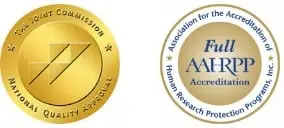Stones (Calculus Disease) – FAQs
The presentation of symptoms depends upon the location, size, and shape of the stone. Many times they are symptom free. They are called silent stones. Common symptoms are as follows :
- Sudden, severe pain- starting in the flanks and moving towards groins. Typically, described as ureteric colic and loin to groin pain
- Nausea and Vomiting.
- Blood in Urine.
- Increased Urinary frequency.
- Burning sensation on passing Urine.
- Infection in Urine.
- People who tend to form stones have certain factors in common.
- Those who stay in the hot environmental condition, such as tropical area.
- Positive family history of the stone disease in first blood relation.
- Decreases fluid intake, which reduces urine output, and forms supersaturated urine.
Various factors play a role in the formation of kidney stone in a susceptible individual. These factors are diet, water intake, urinary output, climate, occupation, and heredity, radical and family background.
If you find a stone, bring it in to your doctor for analysis. The type of stone you have, will determine the diet and prevention programme your doctor recommends. You may need additional tests and X-ray in future to ensure that new stones do not form.
ESWL is an absolute safe procedure in almost all cases.
There may be dull aching pain in site of treatment after the procedure for few hrs. Further there will be colic pain due to passage of stone particles. This normally responds to the medication.
Yes ESWL is a safe option of treatment for stone disease. However one should keep this diseases under control when treating with lithotripsy.
A good first step for prevention is to drink more liquids – water is the best. If you tend to form stones, you should try to drink enough liquids throughout the day to produce at least two litres of urine in every 24 hours period. People who form calcium stones used to be told to avoid dairy products and other foods with high calcium content. However, recent studies have shown that foods high in calcium, including dairy foods, help prevent calcium stones. Taking calcium in pill form, however, may increase the risk of developing stones. Women taking vitamin D and calcium pills in the postmenopausal period to prevent osteoporosis, especially with family history of stones, need to be careful.
In general, you require surgical intervention if your stones are large enough to obstruct urine flow, if they are potentially harmful to your kidneys or if they are causing symptoms for which medication does not help.


